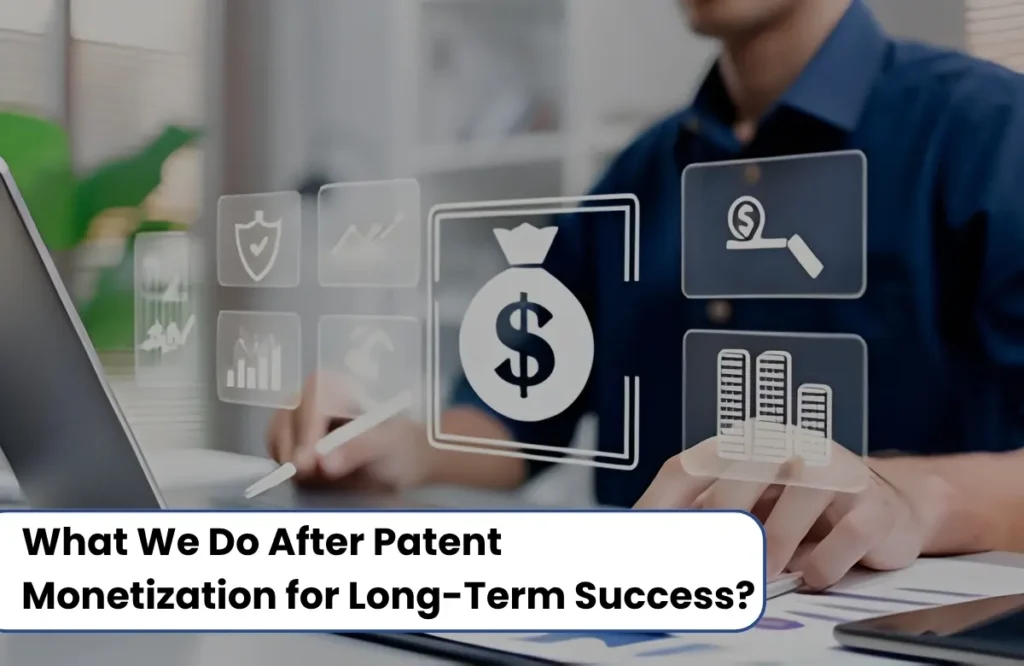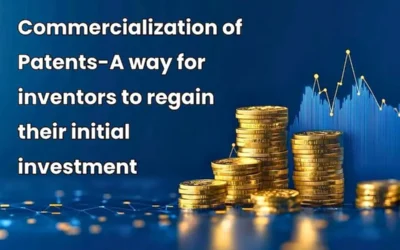
A patent is one of the strongest assets a business can own, especially for companies aiming to pursue licensing deals, sales, or strategic partnerships. However, monetizing a patent is not as simple as it may seem — many businesses struggle to sustain their success after the initial achievement. In fact, the real challenges begin process after patent monetization, when maintaining long-term growth and market sustainability becomes the key concern. Building a roadmap to preserve and expand your patent’s value is essential for lasting success. Keep reading to learn how to overcome these challenges and ensure your success in the future with patent monetization strategies.
How Does Patent Monetization Work in India?
Before exploring what steps to take after patent monetization, it is essential to first understand how patent monetization works in India. Patent monetization is the process through which a patent holder generates revenue from their intellectual property by leveraging its commercial potential. It creates a complete ecosystem involving businesses, investors, and innovators, all aiming to derive financial value from patented technologies.
There are several ways to monetize patents, such as:
- patent licensing,
- patent selling,
- patent pooling,
- patent litigation, and
- patent commercialization or enforcement.
Each method allows the patent owner to choose a strategy that aligns with their business goals and resources. Such transactions are mutually beneficial. For instance, the patent buyer gains the legal right to use and implement the patented technology, while the patent holder or seller earns financial returns from their innovation. This exchange not only promotes innovation and collaboration but also strengthens India’s intellectual property ecosystem by encouraging inventors to transform their ideas into valuable assets.
But in the real world, there are multiple factors that one should keep in mind before doing patent monetization, such as:
Patent valuation helps determine the true market worth and commercial potential of the invention. Conducting market research identifies industries or companies. Third, proper documentation and readiness, including technical details and proof of ownership, enhance credibility during negotiations. A clear negotiation strategy—whether aiming for a quick sale or long-term royalties—should align with the inventor’s goals. And, one must be mindful of tax and compliance regulations, especially in international deals, and seek professional.
Read Also: How Start-Ups and MSMEs Can Commercialize Their Patents Worldwide
Process After Patent Monetization for Patent Holders
The main question that arises after completing patent monetization is: what should one do next? This stage holds equal importance to the monetization process itself, as it is the point where you strategically manage, sustain, and expand the value of your patent assets. After generating revenue, it becomes essential to use the outcomes wisely and plan for long-term growth.
- Reinvest the Revenue: Utilize profits from patent licensing or selling patents to fund new research, drive innovation, and file additional patents.
- Expand Your Patent Portfolio: Strengthen your intellectual property base by developing and protecting new inventions to ensure continued competitiveness.
- Monitor the Market and Competitors: Regularly track how your technology is being used, identify infringement risks, and explore new monetization opportunities.
- Maintain Relationships with Partners: Continue engaging with licensees, buyers, and investors to foster long-term collaborations and future deals.
- Plan for a Long-Term IP Strategy: Create a clear roadmap for future innovations, set R&D priorities, and explore market expansion opportunities.
In essence, the post-monetization phase is about reinvestment, compliance, and continuous innovation, ensuring that the success achieved from one patent becomes the foundation for future intellectual property growth and business development.
Read Also: Why patent monetization platforms matter for company growth in India?
Conclusion
In conclusion, patent monetization in India plays a vital role in transforming innovation into tangible economic value. It not only rewards inventors for their creativity but also fuels technological growth and collaboration within the business ecosystem. However, monetization is not the final step—it marks the beginning of a strategic journey.









